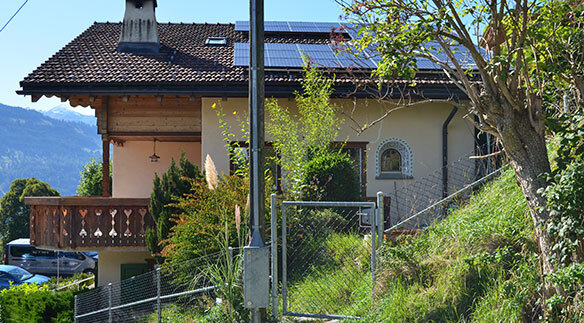Cowa Thermal Solutions develops highly efficient thermal stores
Root - Cowa Thermal Solutions, a start-up affiliated with the Lucerne University of Applied Sciences and Arts, has launched a space-saving thermal storage unit for excess energy from photovoltaic and heat pump systems on the market. Instead of water, it uses salt hydrates as a storage material, which are up to three times more efficient.
Cowa Thermal Solutions has developed a method that allows the capacity of thermal storage units for combined photovoltaic-heat pump systems to be increased several times over. The founders of the start-up based in the canton of Lucerne had already carried out research into this heating and hot water technology as part of their masters degree program at the Lucerne University of Applied Sciences and Arts (HSLU).
According to a press release issued by the university, the founders then worked for another four years in an effort to ensure that their product, the cowa Booster storage, was ready to be launched on the market. The solution was subjected to intensive practical testing during the previous heating season, with the tests ultimately showing that cowa technology helped to double heating self-sufficiency and reduce dependency on the power grid by half. The cowa Booster storage is now available to buy in stores, with the building technology company Meier Tobler acting as sales partner. According to the information, initial discussions for expansion into Germany and Europe are underway.
As HSLU reports, the storage solution increases capacity without taking up additional space. «The core of our technology is the storage material», as cowa founder and co-CEO Remo Waser explains, adding that: «It is based on cost-effective salt hydrates that offer a storage density up to three times higher than that of water. Our thermal storage units are correspondingly more efficient».
The salt hydrates are contained in capsules, the press release explains. The storage tank is filled to around 40 percent with hot water and 60 percent with the capsules containing the salt hydrates. «The cowa buffer storage can store two to three times more energy than a conventional water storage tank of the same size without capsules», comments CRO Jan Allemann.

